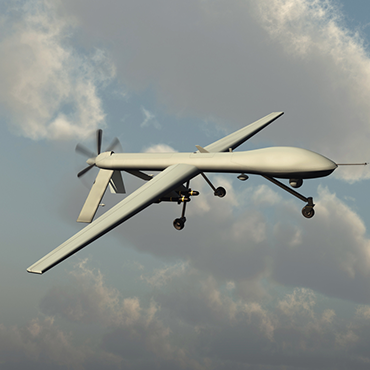FAA's drone test plan leaves privacy to site operators
The six locations chosen to host tests of unmanned planes will be responsible for handling data the vehicles collect.

The Federal Aviation Administration will soon name six locations that will host testing for unmanned aerial systems. The sites themselves will be responsible for maintaining the privacy of any data they collect during their research activities.
On Nov. 7, the FAA released its much-anticipated roadmap that aims to safely integrate unmanned aerial systems into the general national airspace within 10 years. The plan outlines the agency's approach to insuring that more widespread use of unmanned aircraft is safe. The FAA will use the testing to develop requirements and standards for the aircraft.
"We need to make sure we use these sites to obtain the best data that we possibly can," FAA Administrator Michael Huerta said in a statement announcing the roadmap. "The test sites will provide invaluable information that will help us develop policies and procedures to ensure safe, responsible and transparent integration."
The agency plans to select six sites by the end of the year where unmanned aerial vehicle technologies will be developed and tested. States and localities have been lobbying hard to host the sites -- 25 applications from 24 states have been filed with the FAA.
The states believe they have much to gain if the FAA chooses their sites. A study by the state of Utah showed a potential gain of 23,000 jobs and $23 billion in economic impact over 10 years if it were selected.
The FAA is leaving one crucial aspect of the program to whoever wins the drone lottery.
The sites' operators, according to the FAA's plans, will have to develop data storage capabilities that will secure information that might be collected from the surrounding area by unmanned systems. In announcing its data security plans for the sites last February, the FAA said each site selected would have to adhere to federal and state laws, make a privacy policy publicly available and have a written plan for the use and retention of data.
Paul McDuffee, vice president of government relations and strategy at UAV developer Insitu and board member at the Association for Unmanned Vehicle Systems International (AUVSI), told FCW the secure data storage systems developed at the test sites will serve as models for federal operations down the road, as unmanned vehicle use expands nationwide and privacy concerns follow.
"Manufacturers will establish their own processes as the sites are established," said McDuffee. "Data needs will depend on the site," he said, with terrain and location determining what test drones might inadvertently see and what would have to be saved and secured.
An FAA spokesman declined to comment specifically on the coming test site selection, but said the sites would perform a variety of research that would produce multiple types of data. Site operators, he said, would be responsible for the secure storage and have to report to the FAA on compliance.
"In requiring UAS test sites to have a written plan for data use and retention, the FAA also appropriately focuses on the real issue when it comes to privacy – the use, storage and sharing of data, or whether data collected must be deleted," said AUVSI president and CEO Michael Toscano in a Nov. 7 statement. "This dovetails with AUVSI's position that any privacy laws must be platform neutral, treating manned and unmanned platforms the same. UAS are one of many platforms that could be used for collecting data. Privacy policies should focus on how data is collected and used, as opposed to focusing on the specific platform that is doing the collecting."





